My favorite place in the world was Mrs. Wade's bookstore. Mrs. Wade Knew everything about words and I loved 1, too.
Mrs. Wade usual gave me new books to red. She even told me stories about the 2. For this reason, I decided to be a writer when I grew up, I'd always 3 I was a famous writer and read to Mrs Wade. She listened with her 4 closed. Sometimes she would open her eyes and say, "Words are a very powerful (有力的) gift, Destiny. "
I wasn't sure what she meant, 5I felt it very important! Then one day Mrs. Wade told me that she might have to close the store. "Close? But 6?" I cried.
"There just aren't enough customers, "she said,
No! I couldn't believe it! I felt terribly 7. I told Mama about the store.
"I know what the store means to you, "Mama said. "Maybe we can do 8 to help. "
Days later, we held a huge block party. At the party, I helped Mrs. Wade 9boxes of books, almost forgetting to feel sad. Almost!
10an idea came to me! I ran home, took out a notebook and started to write. The moment I wrote down everything I loved 11 Mrs. Wade's store, I ran back.
"I have a present for you, Mrs, Wade. "I 12 the notebook to her.
She opened it and saw “Mrs. Wade's Bookstore, by Destiny Crawford”. He eyes lit up!
"Why don't you 13 it to me?" Mrs. Wade asked.
I was reading every word. Mrs. Wade was listening with her eyes closed. She was so 14. When I finished, she gave me a big, long hug (拥抱).
"Words are a powerful gift, " she said again.
That time 15came to understand exactly what she meant.
Mrs. Wade and I don't know if the store will close, but we will keep reading and writing all words we can!
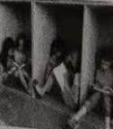
Think of space! What comes to mind? No, I'm not talking about planets or aliens. I'm talking about the space we live in! The world is full of different spaces. We can think about spaces in three different ways: public spaces, private spaces and personal spaces.
| PUBLIC SPACE Public spaces are social spaces for everyone to get together. They belong to everyone. But wait! Before you camp in your local park or throw a party at a library, remember that there are rules. The rules are set to keep these spaces clean and safe. | PRIVATE SPACE A private space is for our own. We all need a space like homes, where we can relax and s stay alone. We are not allowed to enter a private space freely. | PERSONALSPACE This is the space where we sit and stand. Everyone feels different about their personal spaces. People may feel uncomfortable or angry when someone they don't know gets too close. |
We should respect(尊重) all spaces. We should respect public spaces. We can't leave a mess or take anything that doesn't belong to us. It's important to leave no trace(痕迹) in public spaces. We should respect private spaces by asking for permission before entering. And we should respect personal spaces by finding out how much space a friend or classmate needs to feel comfortable. Respecting all spaces helps make us better people. It also helps keep our community safe and fun,
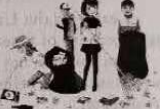
Is there something in your community that could be changed? Is there a person in your neighborhood who could offer help? If you're hoping for someone to make a difference, that someone could be you!
Volunteering your time is a great way to make a difference in your community. And you'll feel good about doing something that helps people or improves the places around you.
This past summer, my friends and I noticed how messy our neighborhood park was. We wanted it to be different. We worked without parents and teachers to clean up the park. We had a great time making the park even better than before, and now the whole neighborhood is able to share and enjoy it again.
Maybe cleaning up a park isn't your choice, though. No problem! You can turn anything that matters to you into a volunteer project. Do you like playing chess, reading, or spending time with your pet? You can volunteer to do what you love to do. For example, you could help at an old people's center, simply by talking or playing games with them to make their days better, If you're great at math or English, you could volunteer to be a homework helper at your school. You're always needed to walk dogs or play with cats. Or you can collect things for hopeless people, such as soap and toothbrushes.
You see, there is something for everyone. Whatever you do as a volunteer, your time will be enjoyed and that always feels good. Kids everywhere are making a difference by volunteering. You can, too!
Everybody enjoys acts of kindness. But can you explain why? Some people think kindness is something out of love and care, while others believe it is just a tool that we use to become more popular, But research shows that being kind can activate(激活) an area of the brain called Striatum. Research also shows that kindness improves people's mood(情绪), But why and how does it happen? Here are a number of different ways.
Being kind can make someone smile. If you see yourself smile in a situation, people around may be smiling, too. This is specially true for your close friends and family. A kind act makes someone what is sad feel better. It can also make ourselves feel good. So why not set off that chain(链条) of good feelings to people around?
Secondly, being kind starts or develops a social connection with others. Kid acts like buying someone a present make friendships stronger. Research has shown that spending money on others may help you get a stronger feeling of happiness than spending it on yourself. Similarly, charities(慈善) also open up new circles of people to connect with someone on the other side of the world.
In another recent research, even children in their first year of secondary school know how being kind makes them feel happy. If one person is kind, he or she makes others in the group kind. It also lifts everyone's spirits. Imagine that you make cakes for the office and it makes others do it each month. Then you're getting cakes a lot more days than providing them.
The story doesn't end here. Being kind may improve your mood, but research has also shown that if you're in a good mood, you can act much more kindly. This makes it a wonderful two-way relationship, doesn't it?
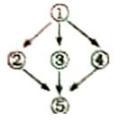 B .
B . 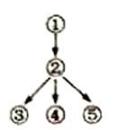 C .
C . 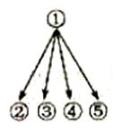 D .
D . 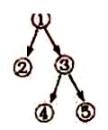
I came to the United States from Africa to live with my uncle Jim in Maryland. One year later, I lost my sight because of a serious illness.
Jim told me not to go out. He worried I would get lost or hit by a car. But I was dogged. I told him I'd pay attention. I believed I'd succeed. I must succeed. I must put my will into action. I dreamed of being a broadcaster.
Then a neighbor told me that a pubic library in Washington D. C. was offering a free course, specially designed for blind people. This was an important chance for me.
But how would I map my way? I knew that the American singer Ray Charles, also blind, got around on his own without a cane(手杖). His secret was to count steps. But I couldn't seem to do that way. Instead I developed my imagination, sensing the layout (布局) of places I visited and taking notes of landmarks in my mind.
A first, I would have to stop to imagine and map a new space in my mind. The next time I visited that place, I'd use that to find the way. Today, I am used to doing it. But I've still lost my way many times. I'd have to swallow my pride to ask for help, not thinking what others think or say about me.
Sometimes I'd be down and I'd consider giving up. Perhaps my uncle was right. Maybe I'd stay home and wait until someone came to help. On those days when I lost my way, I'd go to bed with a bad feeling ▲ . I had a strong wish to beat blindness and be successful, and that was usually enough to get me out of bed the next day and try again.
Along the way I learned to be patient with myself and realized that asking for help didn't diminish(贬低) me in any way. I've got three academic degrees so far.
Today, I'm a reporter and broadcaster. I've achieved my dream.
Yes, I've lost my way many times一 and found it again. Yes, I've come close to being hit by a car but never been hit by one. When people ask, "Aren't you afraid to be out alone?" the answer to me is clear: I would face danger and find happiness instead of staying home and being unhappy.
|
GAME TTME |
||
|
|
Game 1 |
On the table are all kinds of things in a mess. The players use the hook(钩) to pull one thing out of the mess without moving any others. If you pull out the most, you win. To win this game, you need to be skillful and patient! |
|
|
Game 2 |
You need a bag, collect small things like pencils, erasers and so on from the players and put them in the bag. Now pull one thing out of the bag without looking inside. Then give the owner of the thing a task, such as jumping like a frog, singing like a cock, etc. You're sure to enjoy playing and watching this game. You'll laugh a lot! |
|
|
Game 3 |
One player acts as the cat, a bowl in one hand and a coin in the other. Other players hold a line with an object as a mouse in each hand. The cat flips(抛)the coin. If it lands heads up, the cat catches the mouse in the player's left hand; if it lands tails up, the cat catches the mouse in the player's right hand. To win this game, you must be smart and act rapidly! |
A. 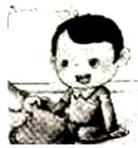 B.
B. 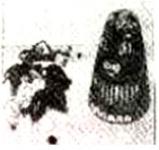 C.
C. 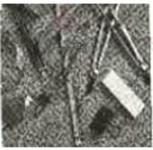
I like Game ▲ , because ▲ .
|
Australia nearly suggest till take part in |
Thailand Literacy Program
Omkoi is one of the mountainous areas in Thailand. It is an area of (北方的) Thailand. There are neither schools (也没有) libraries there and people cannot read or write. The government of Thailand hopes to change that with a program. It (包括) bringing books to the villages.
A number of these villages can be reached only on foot, and there is always a very long rainy (季节) in Thailand. So how do the villagers get books that they need most, especially (在……期间) the rainy days? Of course, teams of (大象)!
Now there are several teams carrying books in Omkoi. They spend almost a month covering (七) or eight villages. These special teams make it possible to provide education for almost two thousand people in Omkoi.
In Bangkok, the capital of Thailand, there's a program called "Train Library for Young People", The train serves the homeless children on the (街道). Years ago, the railway police of Bangkok realized that those children (真正地) needed a good place for learning and they began to act immediately. Now they have cleaned up and (修理) some old railway cars. These cars are turned into libraries for the children.
Ed, William and Dan are three young men who love music. They've left their comfortable homes without taking any (money) or mobile phones. They plan (walk) around the whole Britain, singing for dinner and sleeping anywhere like fields.
Ed and Dan met William when they were at school. They all liked walking. they finished school, Ed went to study art in Paris and became artist. Dan became a gardener and William a bookseller. They were still friends, they weren't very happy with their lives.
One day they said, "Why don't we start walking?" And so they did.
They love simple activities the busy, stressful world.
"People often ask (we) why we're doing this. But you know it's a great life and we're learning so much on our journey, "says William (proud).
Last year they started a website to tell people a lot of stories about their walks. This year they'd like to make videos and tell (many) stories. Next year, they (make ) a CD of their songs and start charity. The future looks good.
|
weekend plan / activities |
内容要点 |
参考词汇 |
|
sports (or music/ drawing) |
paint, play basketball, …. |
|
|
experience of Chinese cultures |
make jiaozi, write with a. Chinese brush, … |
注意:
1)文中必须包含上表中的两个要点,可适当发挥;
2)文中不得出现真实人名、校名和地名等相关信息;
3)词数∶80~100;开头与结尾已给出,不计入总词数。
|
Hi. Steve! I'm Li Hua. I hear you'd like to experience some more Chinese cultures before going back. Yours, Li Hua |